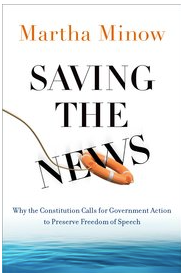New media: How I cope with polarization
- apekary
- Dec 10, 2024
- 9 min read
Updated: Dec 12, 2024
I'm starting something new called "Tuning In." It's an experiment. This post explains why and what it is.
"What": short tips for your mental and media habits
The skinny: I'm starting to post short videos (maybe a minute-long, once or twice a week), tips that have helped me process the negativity in the world and the media. I'm keeping them short so it's something I can sustain in my spare time (and because you're short on time, too). Jump to the bottom of this post for more information or link to them straight away on the platform of your choice:
"Why": the news still increases polarization
Since Donald Trump won the 2024 presidential election, some people have asked what I think about the political division. My answer would probably surprise most. Voters just elected a President who seems intent on breaking up the government. But my personal opinion about the divisive election is inconsequential. As we know, the forces driving polarization are wide-ranging and not likely to change overnight.
Nonetheless, I can't stop thinking about how to help ease the turmoil. Certainly, the media is flawed in many ways. Since I resigned from MSNBC in 2020, the issues with cable news, which I've written about at length, have persisted. The echo chambers of partisan news are more intent on mocking their opponents than scrutinizing "their own" (or presenting substantial information about policy) for fear of losing their audience.
Perhaps a bigger problem, though, is our fragmented news ecosystem. Many Americans have been living different realities in parallel universes -- what they believe is the so-called "truth." What one person may see, hear, or read could be very different from their neighbors. My news reality is not the same as my aunt's, who regularly watches local television (which, as I saw during a visit to her house, was full of nasty and confusing attack ads). Nor is my reality the same as my younger colleagues who are on TikTok.
The media isn't the only liability this nation carries, of course. Critics have described many of them already. Democrats were out of touch. The political system barely represents the people. Income inequality burdens families throughout the country. Yet many politicians and news producers aren't as impacted by factors such as inflation, so they don't fully understand the challenges many Americans face. The list goes on. But my main focus is the media and the way I interact with it.
Two key points about negativity and neuroplasticity
A few years ago, I hit a low point. The news was increasingly negative and I felt overwhelmed by it. I could barely read the news. Some days I didn't. Which is very, highly unusual for me. But disengagement is not the answer so I knew I had to find a new way. Since then, I've been studying and practicing some new skills and ideas. I can assure you, there is a wiser way. It's based on both ancient wisdom and modern neuroscience.
There are two big points here. One, the negativity of the news is driven by our instinctual desire to detect threats. We need to know what risks are looming for survival. (Conversely, the negativity of the news has an adverse affect on our mental health and relationships.) And two: we have the ability to change the way we think. We can control those instincts. That is huge.
First, the news. By definition it is inherently negative. Journalism is supposed to put a spotlight on people and programs doing badly. However, it's increasingly partisan and driven by financial incentives (ratings), so it's worse than it needs to be. Notably, there is a component of the human brain (the amygdala) which functions to detect threats. We are hardwired for negativity. We needed it to survive, but it doesn't always serve us in this modern era. Nonetheless, because we are naturally drawn to negativity, news producers have an incentive to appeal to that need.
Unfortunately, it's not good for us. According to a recent survey, 99.6% of therapists said that "news consumption can have a negative impact on mental health on some level." Another study published by the American Psychological Association found "all types of news media consumption increased emotional distress, but television and social media exposure were more strongly associated." (Emphasis added.)
The APA also published a survey in 2022 that quantified the stress of the nation, describing "a battered American psyche, facing a barrage of external stressors." For example, their findings showed:
75% say violence and crime are major stressors
73% say mass shootings are major stressors
83% say inflation is a major stressor
66% say the current political climate is a significant source of stress
The news media doesn't cause these stressors, but it does reflect and amplify them.
Next, the clincher: even as adults, our brains are capable of change, what's known as neuroplasticity. Until recently, it was believed that the brain stopped developing in early adulthood, but as Michael Merzenich, Professor Emeritus in Neuroscience at the University of California, San Francisco, explains, "We now realize that the brain is subject to change, and this change can be substantially under our control."
So we can overwrite the instinct towards negativity. We can change our mental habits. That is exactly what I've been doing and I am so much better for it.
Why and how I changed my mental and media habits
Frankly, my old mindset wasn't working.
Here's the thing: we often function on autopilot. That’s not to blame anyone because it's the norm. Most people are just trying to survive, getting by day by day, as I was.
The way things are now, if something is wrong with us mentally, we are likely to either ignore it or take a prescription pill for it. But that doesn't address the root issues. Many people are on a mental treadmill (or even a physical treadmill), going to work, paying bills, feeding themselves, feeding their families, and striving for material gain. Whatever status you get, you likely end up wanting more. We are doing what we think we should be doing, based on what is expected of us, what society demands. But are we truly fulfilled?
I was one of those people for a long time, at least until 2020 when I resigned from a career as a news producer. Previously, I wanted people to like me and I thought that meant I had to be successful and attractive and nice and knowledgable and cultured with good taste in food and wine and music (not necessarily in that order). My idea of excitement may have been getting into an exclusive restaurant or club in New York City.
When I quit my well-paying job, I walked away from all of that. I didn't know where I was headed, but I knew that wasn't the right path for me.
But even that -- giving up my salary and lifestyle -- wasn't enough. I was still stuck in a negative cycle. I fell into a depression because I was angry and frustrated, even more angry and frustrated than before I quit my job. I felt like I put everything on the line, but nothing really changed in cable news. The stakeholders, the top rung in the world of media, the ones who I thought could have helped, didn't.
I'll spare you the details but here are some of my twists and turns from the last few years:
Lost income
Learned to teach yoga
Wrote a lot
Got published
Drove across the country
Camped in the wild
Hiked the Grand Canyon, multiple times
Started a podcast
Started to build a web site
Learned to surf
Gave myself black eyes while surfing
Taught yoga to seniors
Became a peer support facilitator
Found myself

And critically: I’ve tuned out. I didn’t just cut the cord, but I’ve followed the news with a casual interest. That’s not being a good citizen but I had to do what was best for me.
And in hindsight, I don't feel like I missed that much. The majority of the news that fills my inbox (I prefer to read the news because it tends to be higher quality, plus I can scrub through it faster) is rubbish. Many stories are "opinion" recycled as "breaking news." Even from legacy news outlets. It's hard to find fact-based, data-driven information.
Good journalism still exists. It just often gets drowned out. That's what I'd like to see changed.
And that change starts with my personal behavior, by living with sharp focus and intent. What that means media-wise is that I don't waste time clicking on or watching junk news.
I've already been doing this. And guess what? I don't suffer FOMO. It's ok to ignore the latest bit of outrage.
How changing my mental habits helps reverse polarization
It's impossible to describe in a single post all the ways that changing one's mental patterns will improve polarization. But I will put it this way: it's much more than simply tuning out the media. What has happened to me is a shift in the way that I think and that manifests in many ways every day, including:
I'm much more open and tolerant of opinions other than my own. (In fact, I've been humbled to the point of not having an opinion on topics I would have in the past. I understand that I don't know everything.)
I'm forgiving of those who do still have strong opinions.
I'm much more accepting and don't blame others for doing things differently than I would do them.
I'm much less judgmental, of myself and others.
I'm much less reactionary.
I'm not afraid of trying someone else's idea.
I've dropped (or am learning to drop) expectations, taking each day as it comes.
I don't feel the need to dictate how others conduct themselves.
I'm not angry anymore towards the people who "let me down."
I recognize what I can't control, which is almost everything in this world other than my own mind -- and that includes other people, their thoughts, their behavior, disease, traffic, elections, or how someone treats me.
I've also nurtured my relationship with the outside world, rendering myself awe-struck almost everyday by the natural beauty of our planet. Now, my idea of excitement isn't based on whether I'll get VIP treatment by a doorman at a cool bar in the West Village. Excitement is the feeling I get when I catch a perfect right-hand wave in Scorpion Bay and a ride it for 300 yards. For one thing, I know I've developed the skill to do something that's very hard. Another, it's an amazing feeling to glide atop the water, feeling united with the universe.
All in all, I have a better relationship with friends and family, with myself, and with strangers. That is the key to improving the world around me and beyond. And I think that's how you fix polarization, little by little, day by day.
"Tuning In": short tips on how to alter your mental (and media) habits
A few weeks ago, I started posting short videos on social media: Instagram, YouTube, and TikTok (not the ideal platform, but I want to meet people where they are). They are short readings or tips that have helped me, similar to the messages I read whenever I teach a yoga class. My students like it -- and the process helps ground me throughout the week. Hopefully it's a win-win for all of us.
I will also share tips occasionally on how to read the news (i.e., what to avoid) or news stories that I find to be high-quality and useful. Look for those here on this blog and in my social media feeds. Currently, I'm still on X/Twitter, but infrequently. I prefer the civility on LinkedIn, but not it's lack of privacy. Still haven't jumped over to BlueSky, but I'll let you know if that happens.
Either way, if you're curious about these new videos, follow my profiles here:
TikTok (I said this is an experiment).
As an example, here is one of my posts that redirects from the negativity we see in the media.
The news media focuses on bad behavior. That’s their job — to expose corruption. (Of course it can be done much better but that’s for another day.) Point is, if you focus on the news, it will taint your view of your fellow mankind. That’s why I love this news story so much. It reminds us of our universal sense of compassion, community, and gratitude. H/t to my yoga teacher @david_kendall_selfe @ohm_and_k
You can watch the corresponding video (it's 55 seconds, and covers more than the graph above) on:
Let me know what you think. I don't want to force these ideas on you. I'm offering them and would love to build a supportive community, so while I'll post some updates here, if you want to see the regular video posts, follow me on the platform of your preference. And of course, if you see something that would be helpful to your friends, please share.
Lastly, I have a list of guiding principles. I'll share those in my next post.
Until next time!
Ariana




Nunggu apa lagi? Slot gacor & WD cepat nunggu kamu di RTP8000!
Gak usah mikir panjang, RTP8000 udah terbukti gacor dan aman!
Sudah login ke Link Slot RUBY8000 hari ini?
Jadikan ini situs andalanmu: login resmi RUBY8000 terpercaya.
Udah capek main di tempat yang gak jelas hasilnya? Cobain RTP8000 deh - situs terpercaya yang bener-bener bayar. Member baru dijamin bisa WD!